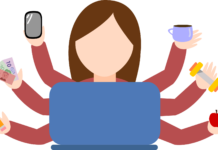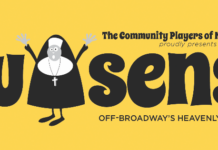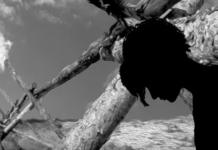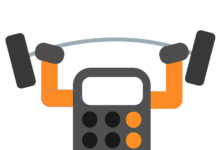With the wave of Southern Ontarian parents boycotting elementary schools and removing their children from class due to controversial changes to the sex education curriculum — partially due to new LGBTQ content— I thought it would be nice to look at recent advances in LGBTQ representation in programming aimed at children and why it’s important. You know, for the same reasons these curriculum changes are important.</p>
A little bit of a non sequitur? Perhaps. But I do love to squeeze media in where it doesn’t belong: boycotts, dinner party small-talk, long drives with my friends where I’ve enabled the child locks and they can’t escape from my three-hour breakdown of queer-positive webcomics. That sort of thing.
I guess I’ll start by saying something that will blow almost no one’s mind: being gay, lesbian, transgender, or anything else under the LGBTQ umbrella is not a choice. Most people know that, or at least I hope.
What every person may not know is that a majority of LGBTQ people experience these differences from a very young age. This doesn’t mean everyone does, nor am I implying sex, though that certainly can be part of it. Instead, from a very young age kids will experience crushes and for some children that will be towards people of their own gender.
Introducing children to the concepts of homosexuality and other genders/orientations at a younger age gives words for these children to use and help them better understand themselves. I can tell you flat out that if I had learned the words for the funny feelings in my stomach while trying to impress all the giggling girls in the schoolyard I would have come out a lot sooner and with a lot less confusion.
This is why the recent advancements in media geared towards children is so amazing and necessary. Having characters for children to identify with is a big help in accepting themselves, for the same reason having racially diverse characters are important — they exist as healthy role models.
In December, creators DiMartino and Konietzko confirmed that Korra, the main character of their incredibly popular children’s show Legend of Korra, was not only bisexual, but at the end of the show both her and fellow bisexual Asami were officially a couple. Both of whom, I must include, are women of colour. A+ for representation!
Steven Universe also included a queer female couple, Sapphire and Ruby who kissed on screen, the Princess Bubblegum and Marceline debate from Adventure Time is a bit fuzzier with their previous relationship being confirmed and then… sort of denied. In ParaNorman the character Mitch Downe states outright, "You're gonna love my boyfriend. He's like a total chick flick nut!", in How to Train Your Dragon 2 Gobber was revealed by creators to be gay, and in Disney’s Good Luck Charlie there was a lesbian couple introduced as the mothers of Charlie’s playmate.
While many of these aren’t mind-blowing it’s an overdue start. However, there still needs to be a hell of a lot more representation.
There is of course the counter argument that sexuality, or any indication of sex, has no place in children’s media. Sure, and I’m not supporting full-blown bareback anal sex in children’s media. Jesus Christ, no. But a large part of growing up, and many of the issues surrounding becoming a teenager or adult, is attraction.
It’s hard to find a series geared towards children, older children especially, where there isn’t at least one romance. It’s hard not to include because it is so central. How you identify, whom you find attractive, and your own gender defines A LOT of how you are perceived and changes how to present yourself to the world.
And we wonder why there are higher rates of depression amongst LGBTQ youth. Learning how to operate in a predominantly heterosexual world is hard, being rejected by family and peers is doubly hard— the least we can do is give these youths an opportunity to see themselves portrayed in a positive fashion. There are enough terrible stereotypes or misguided representations on adult media as it is.
Bringing this back around to why this is relevant now with the boycotts, as someone who loves to look at media I like addressing this issue through that lens, but the exact same issues apply to education. Giving children the tools, and God forbid sane health advice that applies to them (I could tell you enough horror stories of my misinformed queer peers and their first sexual experiences to fill an entertaining afternoon), is just good. Period.
No queer child should have to ugly cry at finally seeing themselves well represented in a television show (like I did) or not understand the health issues related with certain sex acts (like still very much needing condoms for anal sex).
In both cases the representation may not apply to all students, but we deserve to educate and represent those that it does apply to, and at the very least provide well-rounded information for the new generation of children who we can only hope will become more accepting than our own.
Representation in media, in education, and in all facets of life is important to create both healthy and accepting queer and non-queer youth.
































